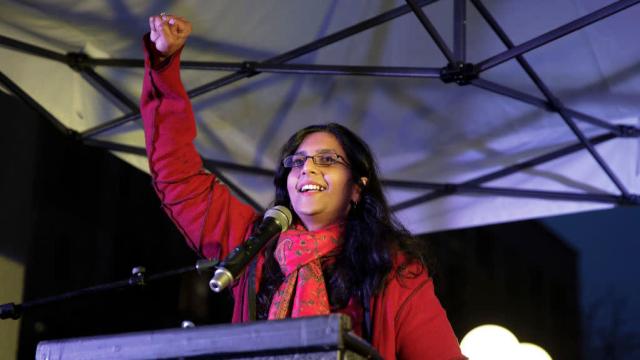Unemployment in the US is still over 11%, and yet during this economic crisis, Jeff Bezos has added an astonishing $US56.7 ($81) billion to his already colossal fortune. If ever there was a time to redistribute some of that wealth, it’s now, and it seems that experiment in equity will begin in Seattle.
The Tax Amazon Movement — spearheaded by one of the country’s few outspoken socialist politicians, Kshama Sawant — was an initiative and associated bill to impose a payroll tax of a mere 0.7% on Seattle’s 800 or so largest businesses, of which Amazon is by far the most visible. In a city long wracked by a homelessness crisis, the estimated $US300 ($430) million in new funds were, sensibly, to be earmarked mainly for affordable housing, something Councilmember Sawant discussed with Gizmodo at length back in March.
If all that sounds familiar, well, it’s because a similar bill — dubbed a “head tax” by pro-business opponents — was voted unanimously into law by the Council in 2018. Amazon responded by halting construction on two buildings, and pouring money into a campaign to overturn the bill. In what Sawant described as “a historically shameful decision,” the Council opted to repeal the tax less than a month after it passed.
In addition to poor corporate citizenship in its home city, Amazon has frequently been criticised for paying little or nothing in federal taxes while soaking up billions in state and local subsidies.
A successor of sorts to Sawant’s bill passed Seattle’s City Council this evening, as part of its COVID-19 response, authored by Teresa Mosqueda, other only other Councilmember who did not vote to repeal the initial “head tax.” This bill — called JumpStart — differs in some important ways, specifically the tax rate and the spending allocation. Where Sawant initially proposed a 0.7% flat tax on the biggest Seattle businesses, JumpStart targets the same of firms (those with over $US7 ($10) million in annual payroll) but imposes a progressive tax of between 0.7% and 2.4% depending on individual revenue above $US150,000 ($215,040). “Jeff Bezos and his billionaire friends are wishing they could call a do-over and have the modest 2018 tax back. Because this new tax on Seattle’s wealthiest businesses is four times larger,” Sawant’s office wrote in a press release this evening.
As might be expected, the spending priorities have shifted largely away from the Tax Amazon Movement’s initial aims and towards more immediately pressing COVID-19 relief. Though likely substantially less than initially proposed, affordable housing will begin to draw some funding from JumpStart next year and in 2022. Unfortunately, the tax also includes a 20-year sunset clause, something which Sawant bitterly opposed.
“The final vote was 7-2,” Sawant told Gizmodo. “I don’t expect Mayor Durkan to support it, but the City Council vote is veto proof.”
“The Amazon Tax shows working people do not need to only play defence, we can also go on the offensive and win big.” It’s not clear if Amazon will attempt to counter this legislation again, as it did in 2018. We’ve reached out to Amazon and will update if they respond.
